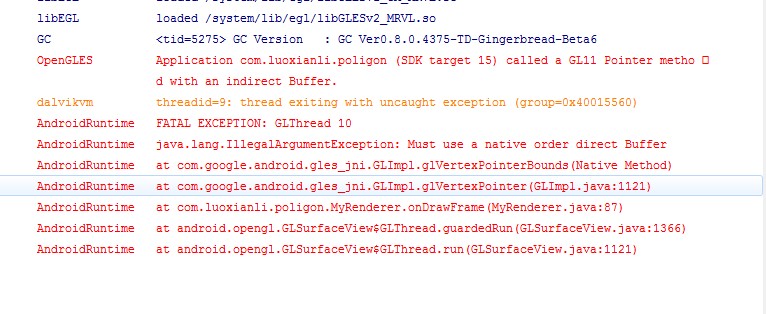定义了几个方法,获取iphone的IP地址。
IPAdress.h
[cpp]
#define MAXADDRS 32
extern char *if_names[MAXADDRS];
extern char *ip_names[MAXADDRS];
extern char *hw_addrs[MAXADDRS];
extern unsigned long ip_addrs[MAXADDRS];
// Function prototypes
void InitAddresses();
void FreeAddresses();
void GetIPAddresses();
void GetHWAddresses();
IPAddress.c
[c-sharp]
#include <stdio.h>
#include <stdlib.h>
#include <string.h>
#include <unistd.h>
#include <sys/ioctl.h>
#include <sys/types.h>
#include <sys/socket.h>
#include <netinet/in.h>
#include <netdb.h>
#include <arpa/inet.h>
#include <sys/sockio.h>
#include <net/if.h>
#include <errno.h>
#include <net/if_dl.h>
#include "GetAddresses.h"
#define min(a,b) ((a) < (b) ? (a) : (b))
#define max(a,b) ((a) > (b) ? (a) : (b))
#define BUFFERSIZE 4000
char *if_names[MAXADDRS];
char *ip_names[MAXADDRS];
char *hw_addrs[MAXADDRS];
unsigned long ip_addrs[MAXADDRS];
static int nextAddr = 0;
void InitAddresses()
{
int i;
for (i=0; i<MAXADDRS; ++i)
{
if_names[i] = ip_names[i] = hw_addrs[i] = NULL;
ip_addrs[i] = 0;
}
}
void FreeAddresses()
{
int i;
for (i=0; i<MAXADDRS; ++i)
{
if (if_names[i] != 0) free(if_names[i]);
if (ip_names[i] != 0) free(ip_names[i]);
if (hw_addrs[i] != 0) free(hw_addrs[i]);
ip_addrs[i] = 0;
}
InitAddresses();
}
void GetIPAddresses()
{
int i, len, flags;
char buffer[BUFFERSIZE], *ptr, lastname[IFNAMSIZ], *cptr;
struct ifconf ifc;
struct ifreq *ifr, ifrcopy;
struct sockaddr_in *sin;
char temp[80];
int sockfd;
for (i=0; i<MAXADDRS; ++i)
{
if_names[i] = ip_names[i] = NULL;
ip_addrs[i] = 0;
}
sockfd = socket(AF_INET, SOCK_DGRAM, 0);
if (sockfd < 0)
{
perror("socket failed");
return;
}
ifc.ifc_len = BUFFERSIZE;
ifc.ifc_buf = buffer;
if (ioctl(sockfd, SIOCGIFCONF, &ifc) < 0)
{
perror("ioctl error");
return;
}
lastname[0] = 0;
for (ptr = buffer; ptr < buffer + ifc.ifc_len; )
{
ifr = (struct ifreq *)ptr;
len = max(sizeof(struct sockaddr), ifr->ifr_addr.sa_len);
ptr += sizeof(ifr->ifr_name) + len; // for next one in buffer
if (ifr->ifr_addr.sa_family != AF_INET)
{
continue; // ignore if not desired address family
}
if ((cptr = (char *)strchr(ifr->ifr_name, ':')) != NULL)
{
*cptr = 0; // replace colon will null
}
if (strncmp(lastname, ifr->ifr_name, IFNAMSIZ) == 0)
{
continue; /* already processed this interface */
}
memcpy(lastname, ifr->ifr_name, IFNAMSIZ);
ifrcopy = *ifr;
ioctl(sockfd, SIOCGIFFLAGS, &ifrcopy);
flags = ifrcopy.ifr_flags;
if ((flags & IFF_UP) == 0)
{
continue; // ignore if interface not up
}
if_names[nextAddr] = (char *)malloc(strlen(ifr->ifr_name)+1);
if (if_names[nextAddr] == NULL)
{
return;
}





